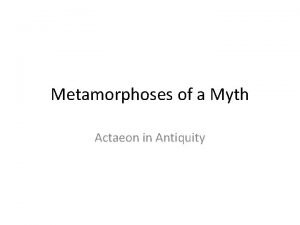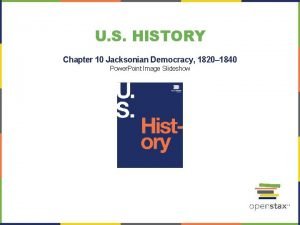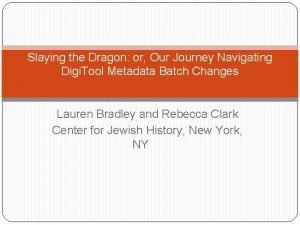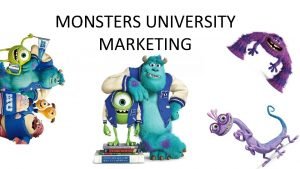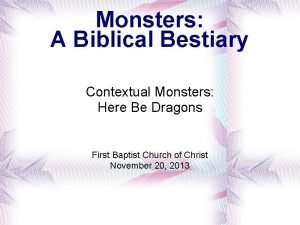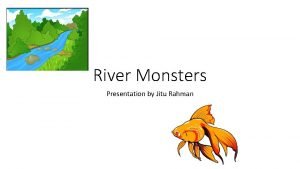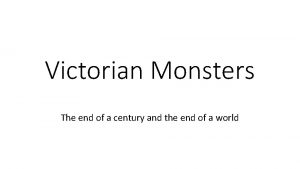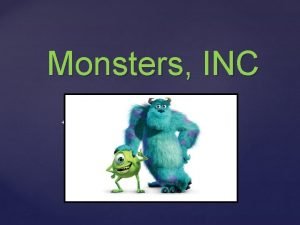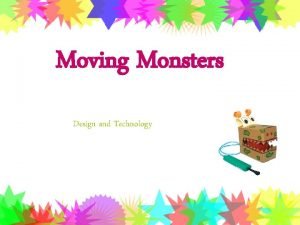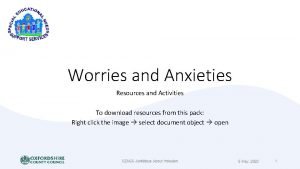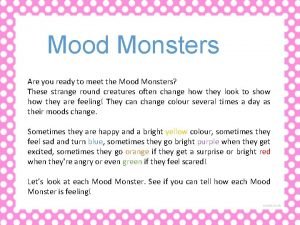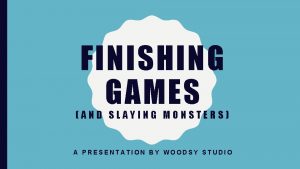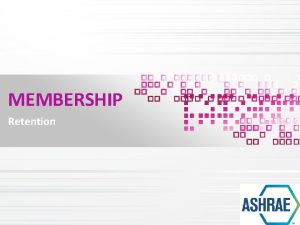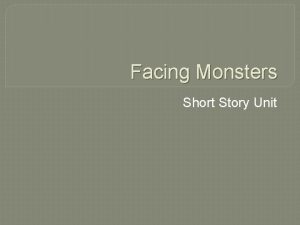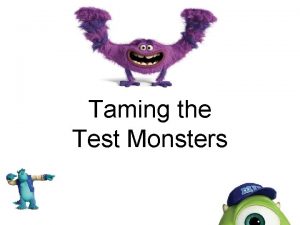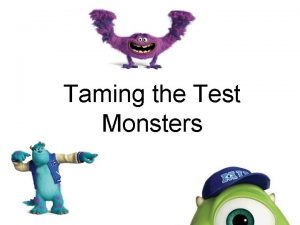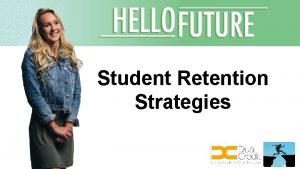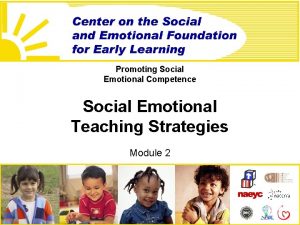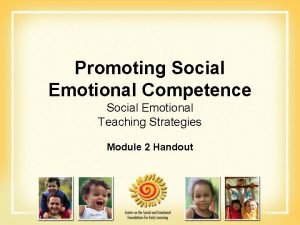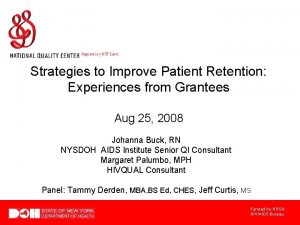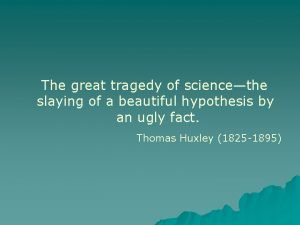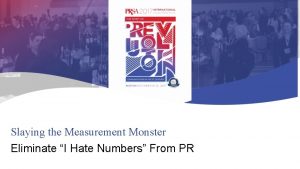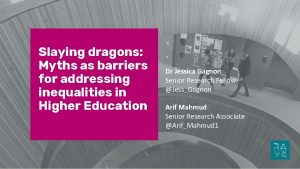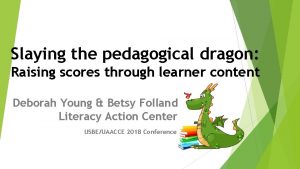Slaying Emotional Monsters Strategies to Improve the Retention

























- Slides: 25

Slaying Emotional Monsters Strategies to Improve the Retention of Adult Learners Ruby A. Rouse, Ph. D Debbie Ritter-Williams, Ph. D University of Phoenix Research Institute

Adult Student Retention (Milam, 2008)

Agenda • Identifying Emotional Monsters • Leveraging Sources of Support • Developing Your Battle Plan!

Identifying Emotional Monsters

Adult Student College Retention Survey (ASCRS) • • • 4, 446 students over the age of 22 1, 300 educational institutions Online survey Data collection spring and summer 2011 Focus of the study – Psychosocial issues – Sources of support – Retention

What is a psychosocial issue?


Top 10 Emotional Monsters Haunting Adult Students in College 71% Stressed about money spent on school 59% Stressed about time away from loved ones 52% Worried about their intellectual ability 49% Stressed by disruptions to their normal routine 42% Feared they need to prove their competence 40% Resented missing interesting activities 39% Stressed about time away from work 38% Felt practical experience was not valued in school 38% Felt uncertain about their academic goals 35% Felt unable to build relationships with other students X 1 st Strike X 2 nd Strike X 3 rd Strike X Other Team Strike

Leveraging Sources of Support




Who are the Heroes of Adult Students?

Most Effective Personal Sources of Support Spouse or significant other 78% Friends taking classes 68% Children 67% Friends not taking classes 47%

Most Effective School Sources of Support Faculty members Academic counselor Financial aid counselor 76% 64% 59% Academic department 56% Other students in class Dean of students 50% 48% Adult student services 45%

Most Effective Work Sources of Support Primary supervisor 61% Co-workers 53%

On-going Study of Adult Student Retention • • • 60 adult students Associate program Cohorted learning Longitudinal study Data collection 2010 -2012 Focus of the study – Retention – Social & Emotional Issues

Collaborative Partners • 78% Spouse/significant other • 76% Faculty members • 61% Primary supervisor

“Cheerleading” Peers • • 68% Friends taking classes 53% Co-workers 50% Other students in class 47% Friends not taking classes

Trusted Advisors • 64% Academic counselors • 59% Financial aid counselor • 56% Academic departments

Retention Rates

Thoughts about the Research?

Developing Your “Battle Plan”


Ready to “Test Your Might”?
 Actaeon
Actaeon Judith slaying holofernes
Judith slaying holofernes General jackson slaying the many headed monster
General jackson slaying the many headed monster Slaying dragons destiny 2
Slaying dragons destiny 2 Ad ops events
Ad ops events Monsters inc realistic
Monsters inc realistic Sirens facts
Sirens facts Nephilim
Nephilim Frankenstein brainpop
Frankenstein brainpop River monsters wiki
River monsters wiki Victorian era monsters
Victorian era monsters Monsters are due on maple street theme
Monsters are due on maple street theme Monsters inc sec
Monsters inc sec Recepcionista monsters inc
Recepcionista monsters inc Poseidon god
Poseidon god Where do monsters lurk
Where do monsters lurk Moving monster
Moving monster The monsters are due on maple street exposition
The monsters are due on maple street exposition 3 judges of the underworld
3 judges of the underworld Econmovies 3 monsters inc. answer key
Econmovies 3 monsters inc. answer key The very hungry worry monsters youtube
The very hungry worry monsters youtube Godzilla king of the monsters 1954
Godzilla king of the monsters 1954 Call of the sea chapter 3 journal entries
Call of the sea chapter 3 journal entries Meet the mood
Meet the mood Roundworms phylum
Roundworms phylum Monsters inside me toxoplasmosis
Monsters inside me toxoplasmosis
